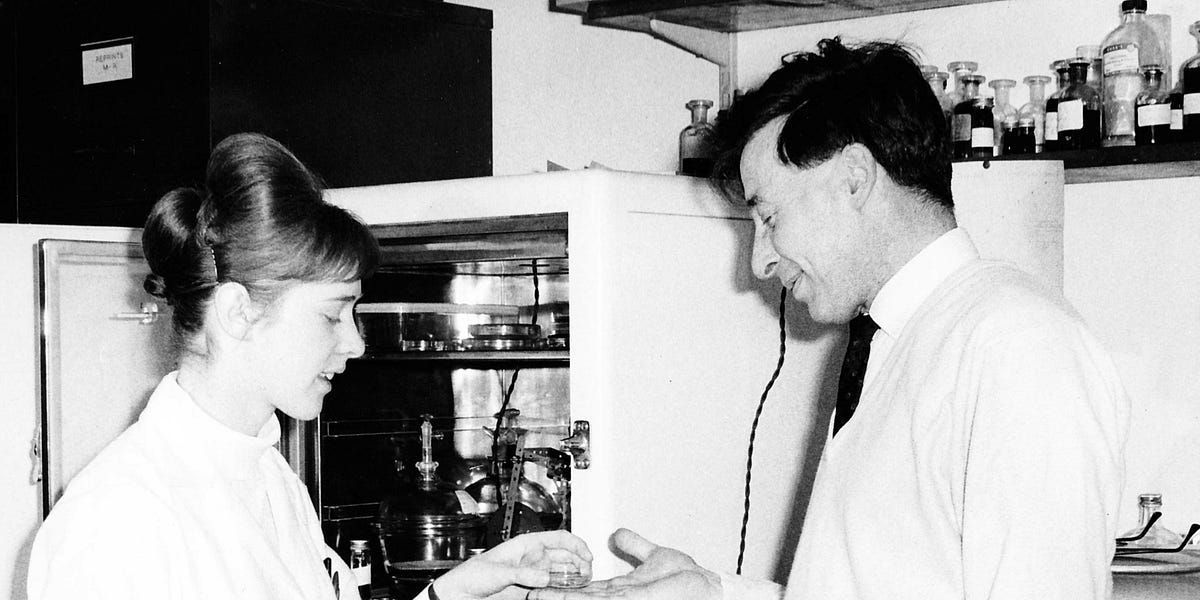Testosterone Therapy and Fertility in Transgender Men: What You Need to Know
Lee Caperton • August 8, 2024
Testosterone therapy in transgender men (individuals assigned female at birth who are transitioning to male) can significantly impact fertility. As transgender men embark on their gender-affirming journey, understanding the potential effects of testosterone on reproductive health is crucial. Here's what the data suggests.

Impact on Ovarian Function
Suppression of Ovulation:
Testosterone therapy generally suppresses ovulation, which can reduce the likelihood of spontaneous conception while on hormone therapy. Read more about ovulation suppression.
Ovarian Reserve:
There is some evidence that long-term testosterone use may impact the ovarian reserve (the number of viable eggs). However, the exact degree of this impact is not fully understood. Some studies suggest that testosterone may cause changes in ovarian morphology and function, potentially reducing fertility over time. Read more about ovarian function and testosterone.
2. Reversibility
Potential for Reversibility:
While testosterone can suppress ovulation and alter ovarian function, some studies have shown that fertility may return if testosterone is stopped. The extent to which fertility can be fully restored varies from person to person and depends on factors like age, duration of testosterone therapy, and overall reproductive health. Explore the potential for reversibility.
Egg Freezing Before Transition: Because the long-term impact of testosterone on fertility is not fully predictable, some transgender men choose to freeze their eggs before starting hormone therapy. This option is often recommended by healthcare providers to preserve future fertility potential.
3. Pregnancy after Testosterone Therapy
Pregnancy Outcomes:
There have been cases where transgender men have successfully conceived after discontinuing testosterone therapy. However, it may take some time for ovulation to resume, and overall fertility may be lower compared to pre-therapy levels.
4. Research Gaps
Limited Long-term Data:
There is a lack of long-term studies specifically assessing the fertility outcomes of transgender men after prolonged testosterone therapy. Most available data come from small studies or case reports, so generalizing findings can be challenging.
Testosterone therapy in transgender men can suppress ovarian function and potentially impact long-term fertility. While there is some potential for fertility to return after discontinuing testosterone, this is not guaranteed, and the degree of reversibility varies. Therefore, transgender men who may want to have biological children in the future should consider fertility preservation options like egg freezing before starting hormone therapy.
For more detailed information and references, please see the studies and articles linked throughout this blog.

Why National Infertility Awareness Week Matters Infertility isn't rare—but it’s rarely talked about. NIAW, led by RESOLVE: The National Infertility Association, exists to: Break the stigma around infertility. Educate the public about reproductive health. Empower those struggling with infertility to speak up and seek support. Advocate for access to care and fertility benefits. Each year, this week reminds us that behind every statistic is a story—and every story deserves to be heard. Infertility Facts You Should Know 1 in 8 couples in the U.S. struggle to conceive or carry a pregnancy to term. 1 in 4 pregnancies end in miscarriage. Infertility affects men and women equally—about 30% male factor, 30% female factor, and 40% a combination or unexplained. Most people wait more than a year before seeking help—even though early intervention increases success rates. The emotional impacts of infertility can mirror chronic illness and grief, affecting mental health and relationships. At Caperton Fertility Institute, we’re here to change the narrative. We provide advanced, compassionate care backed by science—and shaped by understanding. Infertility FAQ: What People Are Afraid to Ask (But Should) How do I know if I’m infertile? If you've been trying to conceive for 12 months (or 6 months if you're over 35) without success, it may be time to talk to a fertility specialist. Does infertility only affect women? Not at all. Male fertility plays a role in nearly half of all infertility cases. That’s why our evaluations always include both partners. Is IVF my only option? IVF is just one of many fertility treatments. Depending on your situation, options might include ovulation induction, IUI (intrauterine insemination), lifestyle changes, or surgical interventions. We tailor every plan to your unique needs. Is infertility treatable? In many cases, yes. With today’s technology and expert care, up to 90% of infertility cases can be treated. Caperton Fertility Institute offers some of the highest success rates in the Southwest. How to Support Someone Struggling With Infertility If someone you care about is going through infertility, here’s how to be there for them: Listen without offering advice. Avoid saying things like “Just relax,” or “At least you know you can get pregnant.” Ask, “How can I support you right now?” Respect their privacy—but let them know you’re a safe space if they want to talk. Join them in raising awareness during NIAW. Sharing educational content or attending events together can mean the world. Let’s Talk About It—Together At Caperton Fertility Institute, we’re using National Infertility Awareness Week as a chance to not only educate, but to empower. Whether you’re just beginning to explore your fertility or you’ve been on this journey for years, you deserve answers, support, and hope. We invite you to: Schedule a consultation with our expert fertility team. Follow us on social media for educational resources, patient stories, and NIAW highlights. Share your story—because speaking up changes everything. Proudly Serving Albuquerque, El Paso & Beyond With cutting-edge technology, individualized treatment plans, and an award-winning team of fertility specialists, Caperton Fertility Institute is proud to support patients in New Mexico, West Texas, and beyond. During National Infertility Awareness Week—and every day—we’re here to help you take the next step toward the family you’ve been dreaming of. Ready to Start the Conversation? Let’s turn awareness into action.

March marks Endometriosis Awareness Month, a time to shine a light on one of the most common yet misunderstood health conditions affecting women and people assigned female at birth. At Caperton Fertility Institute, we are committed to increasing awareness, advancing education, and supporting those affected by endometriosis—especially as it relates to reproductive health and fertility. What Is Endometriosis? Endometriosis is a chronic condition where tissue similar to the lining of the uterus (endometrium) grows outside the uterus—on the ovaries, fallopian tubes, bladder, and other organs. These tissues respond to monthly hormonal changes, often resulting in pain, inflammation, and scarring. Common symptoms include: Painful or heavy periods Chronic pelvic pain Pain during intercourse Digestive issues Fatigue Infertility Endometriosis affects an estimated 1 in 10 women during their reproductive years, yet it is frequently underdiagnosed or misdiagnosed. On average, it takes 7 to 10 years to receive a proper diagnosis. How Endometriosis Affects Fertility One of the lesser-known effects of endometriosis is its impact on fertility. The condition can interfere with ovulation, damage reproductive organs, or cause inflammation that affects egg quality and embryo implantation. At Caperton Fertility Institute, we work with many patients who have endometriosis-related infertility. Through advanced diagnostic tools, minimally invasive surgery, and personalized fertility treatments—including IVF (in vitro fertilization) and egg preservation—we help individuals and couples achieve their dreams of growing a family. Why Endometriosis Awareness Month Matters Endometriosis is often invisible. The pain can be internal, and too often, it's dismissed or minimized. This is why Endometriosis Awareness Month is so important. Increasing awareness helps: Encourage earlier diagnosis and treatment Break the stigma around menstrual and pelvic pain Promote research and better treatment options Support those struggling with chronic pain and fertility challenges How You Can Support Endometriosis Awareness Whether you’re personally affected by endometriosis or want to be an ally, there are meaningful ways to get involved: 💛 Wear yellow to show support—the official color of endometriosis awareness 📱 Use your voice on social media: #EndometriosisAwareness #1in10 #YellowForEndo 🎓 Educate yourself and others to challenge misconceptions 🤝 Offer support to someone going through diagnosis, treatment, or fertility struggles 🏥 Encourage annual OB-GYN visits and advocate for trusted medical guidance Caperton Fertility Institute Is Here to Help At Caperton Fertility Institute, we believe in listening to your story, validating your experiences, and offering real solutions. If you suspect you have endometriosis—or if you’ve already been diagnosed and are facing fertility challenges—our compassionate team is here to help. Schedule a consultation today with our award-winning fertility specialists in Albuquerque or El Paso. Let’s take the next step—together. 💛 You are not alone. This Endometriosis Awareness Month, and every month, we stand with you. Contact Caperton Fertility Institute 📍 Albuquerque & El Paso | 📞 (505) 702-8020 🌐 www.capertonfertility.com

As we reflect on the incredible progress of reproductive medicine, it's essential to recognize the remarkable women whose contributions have shaped the field of in vitro fertilization (IVF) as we know it today. From groundbreaking scientists to the very first IVF patients, these women have not only advanced fertility care but have also brought hope to millions of families around the world. At Caperton Fertility Institute, we’re proud to stand on the shoulders of these trailblazers, whose work continues to inspire the future of fertility treatment. 🌟 Pioneering Scientists & Physicians Dr. Jean Purdy (1945–1985) Often overlooked in IVF history, Dr. Jean Purdy was a nurse and embryologist who played a vital role in the world's first successful IVF procedure. As part of the team that brought Louise Brown, the first IVF baby, into the world in 1978, Dr. Purdy managed the lab and helped develop the embryo culture techniques that made the procedure possible. Today, she is finally being recognized as a true pioneer in embryology and reproductive medicine. Dr. Georgianna Seegar Jones (1912–2005) As one of the first reproductive endocrinologists in the United States, Dr. Georgianna Seegar Jones co-founded the country’s first fertility clinic in 1939 alongside her husband, Dr. John Rock. Her groundbreaking work in early fertility treatments laid the foundation for the future of IVF, offering options for patients who had previously been left without hope. Dr. Kay Elder A direct collaborator with IVF pioneer Robert Edwards, Dr. Kay Elder has been instrumental in training and educating generations of fertility specialists worldwide. Her contributions to research and her dedication to knowledge-sharing have elevated standards in reproductive medicine, ensuring that patients today benefit from decades of refined practices and innovation. Dr. Ana Cobo A leader in fertility preservation, Dr. Ana Cobo revolutionized the process of oocyte (egg) vitrification. Her work has been especially life-changing for patients facing cancer treatments and women seeking to preserve their fertility for future family-building. Thanks to her research and advancements, egg freezing has become a safe, reliable, and widely accessible option for patients around the globe. 🌟 First IVF Baby Louise Brown (b. 1978) The birth of Louise Brown marked a new era in reproductive medicine. As the world's first IVF baby, her arrival offered hope to countless individuals and couples experiencing infertility. Louise continues to be a symbol of what’s possible through science, perseverance, and the dedication of fertility pioneers. 🌟 Advocates & Changemakers Elizabeth Carr (b. 1981) As the first baby born via IVF in the United States, Elizabeth Carr has grown into a passionate advocate for reproductive rights and infertility awareness. By sharing her story, she works to break the stigma around fertility treatments and bring attention to the emotional and physical journeys of those seeking care. Dr. Serena Chen Dr. Serena Chen is not only a highly respected fertility specialist but also a leading voice in reproductive health advocacy. Through her public platforms, Dr. Chen champions equitable access to fertility care and works to raise awareness about the barriers many patients face on their paths to parenthood. Dr. Natalie Crawford One of today’s most influential educators in fertility medicine, Dr. Natalie Crawford uses social media to empower women with knowledge about their reproductive health. Her approachable and informative content has helped destigmatize infertility and created a supportive space for people navigating complex fertility journeys. Honoring the Women Who Inspire Us The journey of IVF, from a groundbreaking experimental procedure to a widely used and highly successful treatment, would not have been possible without the contributions of these extraordinary women. Their dedication to science, advocacy, and education continues to transform lives, and their legacies are felt every day at clinics like Caperton Fertility Institute. As we celebrate these pioneers, patients, and changemakers, we are reminded of the power of innovation, compassion, and resilience in the field of fertility care. We are grateful for their work—and we look forward to carrying their mission forward by helping you build the family of your dreams.
